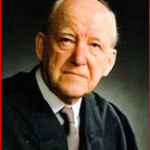 From Great Doctrines of the Bible: God the Father, I would remind you that I am not insisting that the order which I shall follow is of necessity the right one, and certainly not of necessity the chronological one.
From Great Doctrines of the Bible: God the Father, I would remind you that I am not insisting that the order which I shall follow is of necessity the right one, and certainly not of necessity the chronological one.
‘So how do you arrive at your order?’ asks someone. My answer is that I mainly try to conceive of this work going on within us from the standpoint of God in eternity looking down upon men and women in sin. That is the way that appeals to me most of all; it is the way that I find most helpful. That is not to detract in any way from experience or the experiential standpoint. Some would emphasise that and would have their order according to experience, but I happen to be one of those people who is not content merely with experience. I want to know something about that experience; I want to know what I am experiencing and I want to know why I am experiencing it and how it has come about. It is the child who is content merely with enjoying the experience. If we are to grow in grace and to go forward and exercise our senses, as the author of the epistle to the Hebrews puts it (Heb. 5:14), then we must of necessity ask certain questions and be anxious to know how the things that have happened to us really have come to take place.
My approach therefore is this: there is the truth of the gospel, and we have seen already that it is a part of the work of the Holy Spirit to see that that truth is proclaimed to all and sundry. That is what we called the general call — a kind of universal offer of the gospel. Then we saw that though the external or general call comes to all, to those who will remain unsaved as well as to those who are saved, obviously some new distinction comes in, because some are saved by it. So the question we must now consider is: What is it that establishes the difference between the two groups?
And the way to answer that question, it seems to me, is to say that the call of the gospel, which has been given to all, is effectual only in some. Now there is a portion of Scripture which is a perfect illustration of this. The followers of Christ who were even described as ‘disciples’ were divided up into two groups. One group decided that they would never listen to Him again. They left Him and went home. And when He turned to the others and said, ‘Will ye also go away?’ Peter said, ‘Lord, to whom shall we go? Thou hast the word of eternal life’ ( John 6:67–68 ). The one group disbelieved and went home, the others, who had heard exactly the same things, stayed with Him, wanted to hear more, and rejoiced in it. What makes the difference? It is that the word was effectual in the case of the saved in a way that it was not effectual in the case of the unsaved who refused it.
This, then, is something that is quite obvious. We can say that in addition to the external call there is this effectual call, and that what makes anybody a saved person and a true Christian is that the call of the gospel has come effectually. Let me give you some scriptures that establish that. The first, Romans 8:28–39 , is a great statement of this very thing. ‘We know,’ says Paul, ‘that all things work together for good to them that love God … ’ Not to everybody but ‘ to them that love God ’. Who are they? ‘To them who are called according to his purpose,’ and Paul goes on: ‘For whom he did foreknow, he also did predestinate to be conformed to the image of his Son, that he might be the firstborn among many brethren. Moreover whom he did predestinate, them he also called: and whom he called, them he also justified: and whom he justified, them he also glorified.’ The saved are described as those who are called . And they have been called in a way that the others have not. That is, therefore, a scriptural statement of this effectual call. Continue reading

